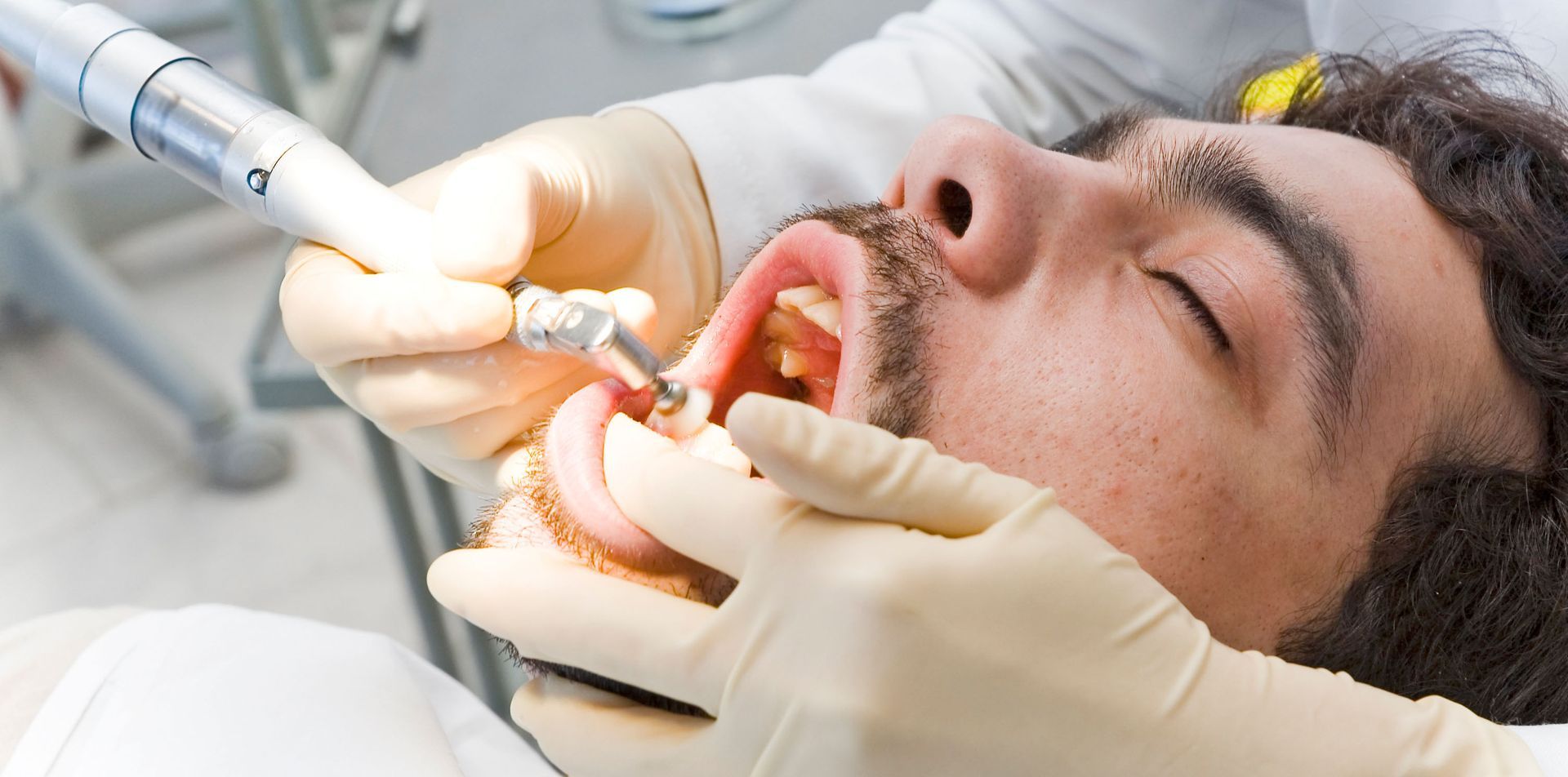Visiting a new dental office can be an unfamiliar experience that brings both anticipation and anxiety. Knowing what to expect can help alleviate any uncertainties and ensure a smooth visit. This guide will walk you through the key elements of your first visit, from the initial check-in process to the final follow-up. Understanding these steps can help you feel more at ease and enable you to take control of your oral health journey. Let’s dive into the expectations for your upcoming dental appointment and help you prepare for a comfortable and informative experience.
Understanding the Check-In Process
Checking In at Reception
Upon arriving at a new dental office, the first point of contact is usually the reception desk. Here, friendly staff will greet you and verify your appointment details. This initial interaction is an opportunity to confirm your personal information and address any immediate questions. As part of the check-in process, the receptionist may provide you with a brief overview of your scheduled visit. Promptly conducting this procedure ensures that the rest of your visit proceeds smoothly.
Receptionists are typically knowledgeable about the dental practice’s procedures and protocols. They are there to guide you, making your visit as comfortable as possible. If you have specific needs or requests, this is the time to communicate them. According to Forbes, effectively managing these interactions can help minimize the stress often associated with dental visits. Alleviating anxiety is crucial, as a comfortable patient is more likely to retain positive impressions of the dental practice.
In many modern dental offices, technology has streamlined the check-in process. Digital kiosks or tablets may be available for you to confirm or update your personal information. This technology aids in reducing wait times and enhances data accuracy. Additionally, the system ensures that the office adheres to stringent privacy regulations. By minimizing paperwork, dental offices aim to make your visit efficient and stress-free.
Filling Out New Patient Forms
As a new patient, you’ll need to fill out several forms before your examination. These forms typically request essential information, such as contact details, medical history, and consent for treatment. Providing accurate information on these documents is vital to ensure safe and appropriate care. Dental offices are committed to maintaining the confidentiality of your personal health details. These forms serve as your introduction to the dental staff, offering them key information needed for your care.
Completing these forms may seem tedious, but they are integral to your dental record. Accurately listing any known allergies or medical conditions enables the dental team to tailor their approach. This diligence reduces the risk of adverse reactions to treatments such as anesthesia. Additionally, straightforward communication on these forms streamlines future interactions with the dental practice. You can often complete these forms electronically, which can save time during your visit.
If you have dental insurance, you’ll also provide this information with your new patient forms. Having your insurance details ready ensures that the billing process is handled efficiently after your visit. Some practices allow you to fill out forms in advance, either online or by email. This approach not only saves time during your visit but also secures your place as a prepared and informed patient. Remember, clarity and honesty in filling out these forms are critical to a smooth first visit.
Providing Insurance Information
Understanding your dental insurance is crucial to managing oral health expenses. When visiting a new dental office, it is important to provide accurate insurance information at check-in. Most dental offices have staff available to help interpret your insurance benefits and clarify any coverage questions. Bringing a copy of your current insurance card or policy helps expedite this process. Properly processing your insurance can reduce the stress of unexpected out-of-pocket costs.
Insurance information assists the staff in verifying your coverage for specific treatments. Many dental offices offer services like pre-treatment estimates, allowing you to know potential costs upfront. By discussing your insurance plan, the reception team can also advise on financial options available to you. Understanding what is covered by your insurance and what you may need to pay can help you plan financially for your dental health needs. Additionally, dental offices strive to maximize your benefits, reducing the financial burden on you as much as possible.
Dental insurance verification often uncovers additional preventive treatment benefits that patients may not be aware of. Having this information at your disposal helps in making informed decisions about your oral health. According to Forbes, nearly 90% of U.S. adults aged 20 and older have had at least one cavity, highlighting the importance of regular dental care. Efficient handling of insurance matters ensures that your focus remains on maintaining healthy teeth and gums. A clear understanding of your coverage promotes proactive management of your dental care.
Reviewing Your Health History
Your health history is an essential component of your dental record, providing a comprehensive background for your new dentist. It allows the office to understand any medical conditions or medications that may impact your dental care. Communicating this information accurately can prevent potential complications during treatment. For instance, certain medications might influence oral health, requiring modifications to typical treatment plans. Full disclosure during this overview is essential for ensuring safety throughout your visits.
As you provide your health history, be sure to include details about any surgeries, allergies, or chronic conditions you may have. This data is invaluable for creating a personalized dental plan that considers your unique medical needs. Your transparency also reinforces trust between you and the dental team, ensuring better health outcomes. If any changes occur in your health status, updating the dental office is crucial to continuous care. Consistent communication helps in delivering targeted, efficient dental care.
The dental office typically reviews your health history during the initial appointment. This process can give patients peace of mind, as it establishes clear communication channels about health risks. With this knowledge, dental professionals can make informed decisions about safe treatments. Additionally, exams and procedures can be better tailored to meet patient needs. Complete and realistic health histories support comprehensive care and reinforce confidence in dental experiences.
Confirming Your Appointment
Once all necessary documentation is in place, confirming your appointment’s specifics ensures mutual understanding between you and the office. Appointment confirmations typically involve specifying the day, time, and services expected. This stage in the process is often accompanied by digital reminders sent via email, phone calls, or text messages. This technology reduces the likelihood of missed appointments, ensuring continuity of care. Regular reminders contribute positively to your experience and the organization’s smooth scheduling.
A dental office that prioritizes communication often offers various methods for confirmation, such as electronic reminders. Digital platforms allow patients to manage appointments and make necessary changes conveniently. Enhancing patient participation in scheduling promotes trust and adherence to care plans. By offering multiple communication options, dental offices cater to diverse preferences, ensuring optimal engagement. Staying informed through these confirmations aids in reducing patient uncertainty and anxiety surrounding dental visits.
If any scheduling conflicts arise, contacting the dental office promptly for rescheduling is important. Understanding the practice’s policies regarding cancellations and rescheduling can help you navigate unexpected changes. Establishing good communication habits with the dental office reinforces reliability and commitment to maintaining oral health. Recognition of mutual scheduling needs strengthens the patient-office relationship. Ultimately, organized confirmation processes ensure the seamless execution of your dental care regimen.
Your first appointment at a new dental office doesn’t have to be stressful. Knowing what to expect can help ease any anxiety and prepare you for a smooth, comfortable experience. From reviewing your medical history to discussing treatment goals, each step is designed to support your oral health. If you’re looking for a welcoming and professional dental office, Bennett Family Dental is here to help. Contact us today to schedule your first visit. We look forward to caring for your smile.





Share On: